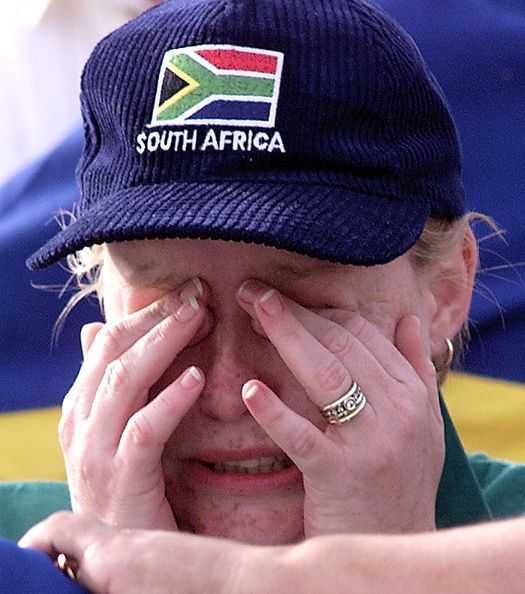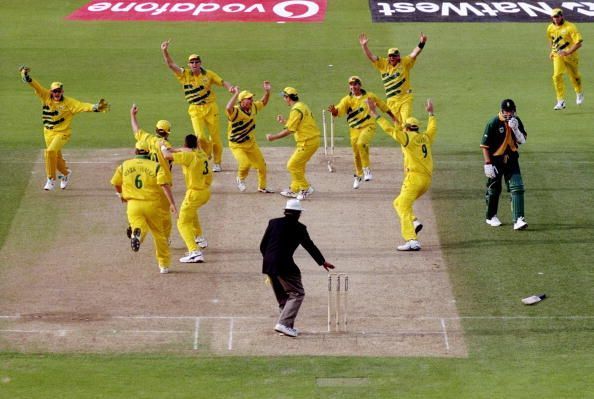
17th June 1999: When the greatest ODI was played between Australia and South Africa
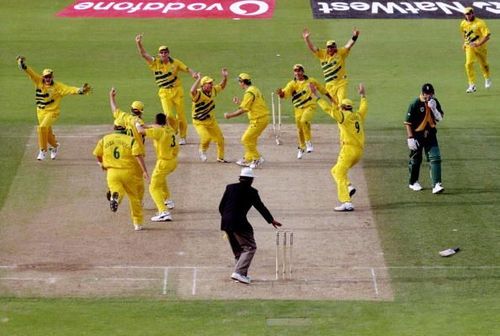
Before Adam Gilchrist stuffed a little squash ball in his glove to bludgeon Sri Lanka out of contention for a World Cup victory in 2007, in a fashion more torrential than the rain that had earlier affected the match, before Ricky Ponting gave a small reminder of his mettle to be the successor to the likes of Waugh, Taylor, and Border, with an assault of a century in the 2003 finals after Sourav Ganguly's Hussainesque decision to send Australia in to bat when he should not have, before Australia went into a rampaging spree of global domination in One-Day cricket like nobody did before, there was this game at Edgbaston, on this very day, in the year 1999.
Some call the 2006 run-slew at Wanderer's the greatest limited overs contest in the history of the sport, others might point to the 1983 World Cup final, but that is out of sheer romanticism with the underdog toppling the heavyweights. But those who were in attendance at Birmingham for the 1999 World Cup semi-final, will tell you how they have never seen a greater display of cricket on the field.
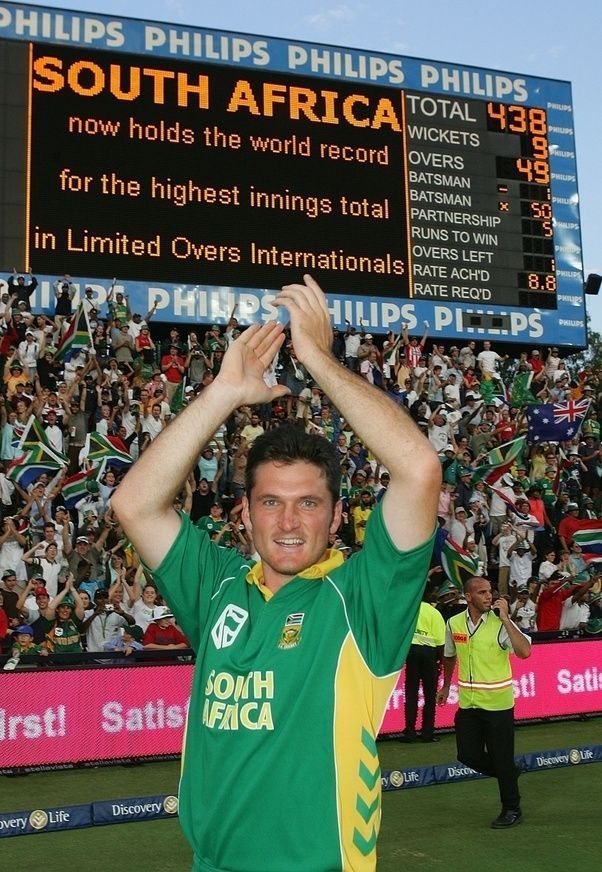
In what was only their third World Cup campaign, South Africa were a side brimming with specialists of the format while Australia were still improvising as they went along, still not having adjusted to the radical changes in the white ball game brought about by the 1992 World Cup. Nevertheless, they had charged into the semi-finals after emerging on top in five must-win matches in a row.
In 1999, winning the toss and chasing in consequential matches was radical, but that was the stuff Hansie Cronje was all about. The fifth ball of the match, Shaun Pollock bounces out Mark Waugh with a delivery that seems barely possible to conjure even when I try to bowl it on a green deck, under the greyest of skies, in the anything-goes simulating realm of EA Sports' Cricket 07. Starting way outside the line of the off-stump, the ball just kept on zeroing in on his body at an expeditious tempo 'til it aligned itself with the most uncomfortable line in the geographical coordinates of a swaying Mark Waugh, affectionately nuzzled the glove of the batsman in an outlandish manner that was straight out of an anime.
The dismissal set the tone for the Proteas who went on an attacking spree leaving the Australians reeling at 4/68 after the completion of one-third of the innings.
Things bode in a direction of a typically one-sided dominated match as you unsuccessfully stifled a yawn at the thought of spending a summer afternoon watching South Africa flatten Australia and battle it out against Pakistan on the following Sunday.
Did you forget how the nineties established the pattern of matches played on an apparent pattern of a typically boring one-dayer before the pattern of topsy-turvy course of events took over?
Inception. Cricket did it before the hack Christopher Nolan employed it.
As soon as it all looked like going downhill, Steve Waugh, known for being the skipper of the side, more importantly at the expense of the greatest skipper who never was, Shane Warne. Waugh, in his fourth World Cup, had seen and been through the adversity of ODI cricket enough times to orchestrate the rather free-falling innings into respectability. In a 90 run stand with the quintessential endorser of ECG machines with his ability to perform under pressure, Michael Bevan, Waugh scored 56 before edging one to the wicket-keeper.
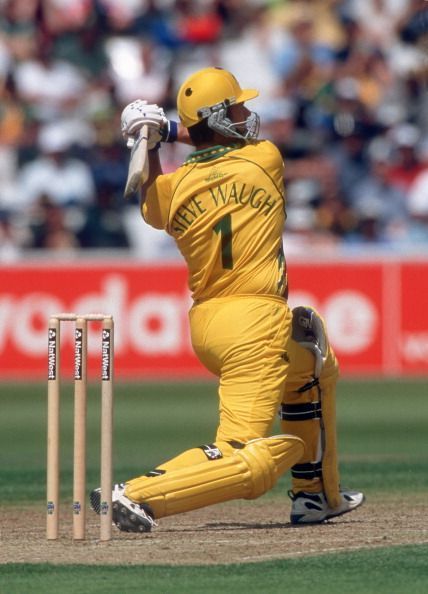
Boucher, who unlike the infamous blasphemy of Herschelle Gibbs in the Super-6 match, held on to the ball to get Steve Waugh back into the hut.
80% of the last five batsmen failed to add anything to the total, thanks to the relentless duo of Pollock and Allan Donald, who incidentally, will feature in a bigger role later in our magical or ill-fated lore (adjective subjected to vary according to which camp you were in on "that day"), and their well directed in-dippers that crashed into Aussie stumps and toes with identical mercilessness. Australia finished at 213, Bevan top-scoring on yet another day of crisis with a gritty 68.
213 was no daunting number, no South African nerves wrecked at the sight of it, at least it in the beginning.
Against the new ball, South Africa launched into a confusing yet surprisingly effective cocktail that was one part flurry of boundaries and two parts sedate defensive batting.
Gary Kirsten's conservative approach and Gibbs' flaying at anything on a full length or a width that allowed the slightest bit of room for some horizontal flaunting, meant that in an all-important match, their team had seen off the intimidating duo of Glenn McGrath and Damien Fleming, although legend has it that the spirit of Australia's second change bowler haunts their REM cycles to this very day.
At 43 for no loss after ten overs, Waugh tossed the ball to this wrist-spinning bloke named Shane Warne. Maybe he could work something out against the run of play. It took him as few as seven balls to land his first blow. Going over the wicket to Gibbs, he bowled a fuller-pitched version of this, only this time the deception was in the flight of the ball as well. Gibbs, like the victim of a similar minuscule onslaught six years ago, could not believe that the ball had snuck through and spun past everything to disturb the well-embedded furniture behind him.
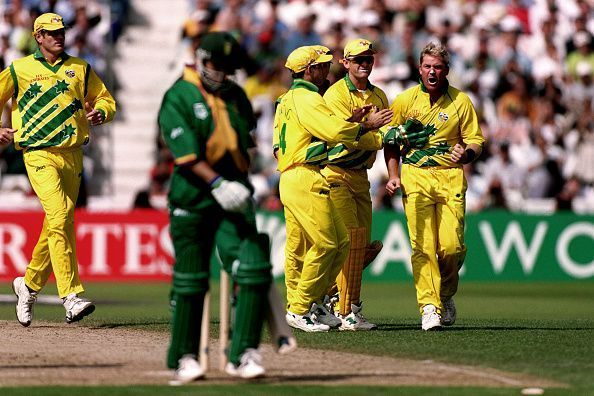
Ten balls later, Kirsten meets a similar fate as his opening partner with Warne beating the sweeping locus of his bat to evoke the ominous sound of the rattling of the wickets as the ball hit the off-stump. And for the first time in the match, Warne roared a cry of ecstasy, and as he would do for the years to come, Warne made Australia believe.
Ten balls later, no this is not the exact same paragraph as the previous, the captain of the side, Cronje is done in by Warne's ripping leg-spinner and the slowness of the delivery that has him playing a very mistimed drive leading to a bottom edge straight into the hands of the first slip. From 0/48 to 3/53, South Africa find themselves wondering why they went into the match with six seamers and no spinners as Warne has figures of 3-2-3-3.
Ah, the good old days when leg-spinners stayed true to their descriptions and took wickets with the purest manifestation of their art, slow, gripping and mesmerizing revolutions on the ball, unlike the sell-out wrong 'un snooze-fest we see these days, courtesy the excessive T20 cricket that is played.
Even in a pre-Brendon Urie era, South Africa found themselves indulging in some Panic!
After some rebuilding work by Jacques Kallis, Jonty Rhodes and some extravagant hitting by Shaun Pollock to follow his five-for earlier in the match, South Africa needed just 37 runs off 32 balls with five wickets in hand to seal a place in the final.
At this point, you'll probably wonder how exactly they managed to let Australia play Pakistan at Lord's on June 20th.
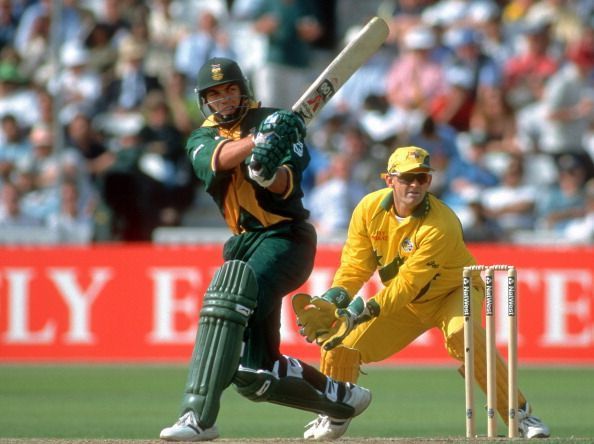
Warne, in one last excruciating effort, had Kallis popping one to covers to be dismissed for a characteristically well-fought 53, and finished his greatest ever ODI performance with figures of 4/29. What was now a match swaying in the Proteas' favor, tilted back slightly into balance. In a pleasing route of symmetry, you often wonder how Australia's greatest batsman and bowler saved their very best to be executed on English turfs.
Kallis' wicket meant that out walked the greatest ODI star of that specific timeline, Lance Klusener. He smashes his second ball, a fast constricting Damien Fleming delivery, lackadaisically swatted to the mid-wicket boundary as if he had been doing it all his life. His sinister intent of heroism, albeit fateful, to follow from then onwards in the innings became foreboding through that one stroke.
A lower order gaffe and Klusener's unaffected demeanor took the match to the last over with nine runs to get and Donald left the sole batsman to give company to the Player of the Tournament.
Fleming to Klusener, with a shot at the turn of the millennium glory at stake. Klusener drilled the first two balls through covers to first beat deep cover and then long off to put South Africa a solitary run in sight of reaching the final.
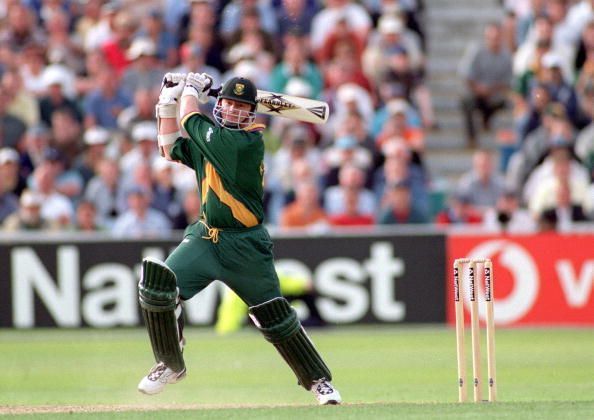
Zulu, you beauty! With the backing of fans all over the cricketing fraternity, sans Australia for obvious reasons, Klusener will now land the decisive blow to take South Africa over the line and a potential World Cup win will truly redeem them, after decades of ignominy due to their country's crippling Apartheid policies. Forget what South Africa could have been in all the years of global sporting they missed, this will be the moment that will etch into their folklore for years to come.
That is exactly what happened, the unforgettable, but only for the wrong reasons. After getting away with a mix-up on the third ball of the over, it certainly seemed like South Africa's match to lose from there, with fortune favoring them in form of an awfully directed throw by Darren Lehmann.
Only if fortune favoured them yet again, one last time, as Klusener dug out the fourth ball of the over to a sprinting Mark Waugh at short mid-off, Klusener ran, he ran for dear glory, only to be befuddled to distraught by a confused Allan Donald who was rather reluctant to run given the proximity of the ball to the fielder. Seeing the fixated Donald, you thought, surely there was a run on, if Klusener could make it to the other end, so could he.
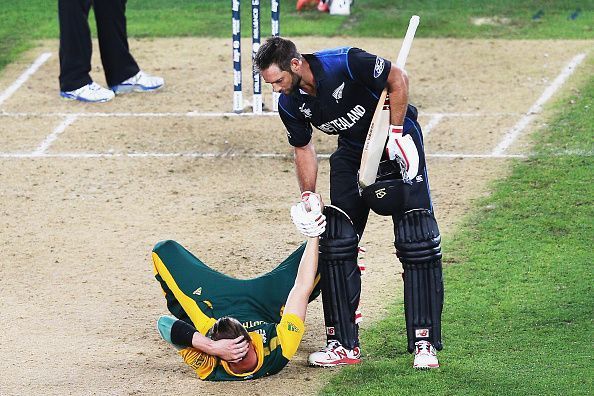
Waugh throws the ball to Fleming in a fit of adrenaline, who rallying the action and the emotion, passes on to Gilchrist, all this happens while Donald finally decides to run but has lost his bat, but the man with the safest pair of hands on the field, has enough time to collect the ball and knock down the stumps in a violent fit of exhilaration.
Allan Donald, the White Lightning, is ironically stranded halfway down the pitch and sees the world falling apart in front of him as the stumps crash in tragic swiftness along with the hope of an eventual glory vested in vain in fifty million South African hearts.
